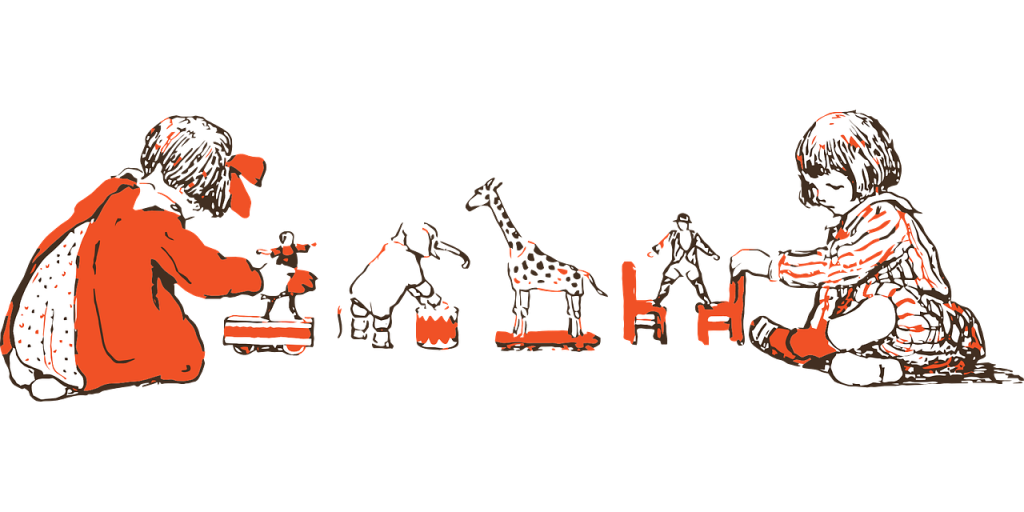Coping with crisis:
Owing to COVID19 crisis, we have gone through a few weeks of lock-down now and have a few more weeks ahead of us. We have had to establish a new order of things at our homes. Multiple generations of family members are at home all the time. Working from home professionals, children at home, homemakers and senior citizens – everyone’s routine has been altered.
Parents are especially anxious about keeping children occupied with productive work. My humble advice to parents is to keep it simple. Let them get bored for a while, let them do nothing, leave them to their own devices for some time. The brain gets saturated by continuous engagement, it needs time to process and reflect. It gets saturated by continuous entertainment too, so it might be good to control the binge-watching of movies and TV series. 😊
Fun activities for engagement:
Nevertheless, I understand the enormity of children cooped up at home and their degrees of freedom curtailed. Here are some fun Maths activities to keep children engaged, without the burden of a prescribed syllabus. These are triggers of thoughts and ideas, do use your creativity to use them as you wish. You could also team up with your children to create your own. This helps in bonding with them. The activities are simple and can be done by anyone, children and grownups alike. Give it a shot.
Counting
- Have you ever wondered how many grains of rice you can hold in your closed fist? Give it a try. Pick up rice grains in your fist and count them.
- How many strands of hair are in your eyelashes? – one eye and both eyes
- How many glasses of water do you drink in a day? Count for a week
- How many letter tiles are in a Scrabble game board set? What’s the total number of points of all the tiles?
- How many moles do you have on the visible parts of your body? – Face, arms, hands, and legs
- How many stories do you know by memory? Make a list.
- How many books have you read? Make a list.
- How many books do you want to read? Make a list.
- What food do you like to eat? – favourite meal, favourite snack, favourite dessert, etc. The same applied to what food items do you like to cook.
- How many friends do you have? – Real and Virtual
Once all the counting activities are done, you could play a game of tabulating all the data collected.
Measurement
- What is the area of your favourite plate?
- What is the area of your blanket?
- What is the length of nail grown in a week?
- Lie down on the floor and draw the outline of your body. Then using a thread, measure the outline and determine the perimeter.
- How much coffee/tea/milk do you drink in a day? Measure in cm3 or litres. Extend the same to a week
- Lung capacity – How much air can you breathe? A simple way to measure lung capacity is to blow air into a pipe through a water-filled (to the brim) vessel. Collect the overflowed water in another vessel or a wide plate. Measure the volume of this water in number of glasses. This is the number of glasses of air you breathe every time.
- If your heart is the size of your fist, then what’s the volume of the blood in the heart? Use the water overflowing method (#6) to measure the volume of your fist. This volume will be approximately equal to the volume of blood in your heart.
- How much rice is cooked every day at your home?
- It has been raining heavily in Bengaluru over the last few days. What is the amount of rainfall in your area this week?
- What is the amount of water you can hold in your mouth?
Time and frequency
- Turn the fan on, keep it at the slowest rotation speed, and count the number of rotations in a minute.
- Learn how to find the pulse and measure your pulse.
- Concentrate and measure the number of times you breathe in a minute – Inhale and exhale is one breathing cycle.
- Time for which you can avoid blinking – Play the stare at my eye game
- How many times do you chew your food?
- How many times do you open the refrigerator during the day?
- How many times do you check your phone for new messages in an hour?
- How many times are you getting bored in a day?
- How many pages can you read in an hour?
- What is the time you take to write a full-page essay on your lock-down experience?
It is important to keep the activities contextual and allow the participants to think and do some research to complete the activities.
Next week I will share some ideas of activities based on the five senses. Stay tuned. Until then, stay home and stay safe.
Featured image credits: OpenClipart-Vectors from Pixabay
Sriraghavan S M
Latest posts by Sriraghavan S M (see all)
- Why self-directed learning is the need of the hour - 2 July 2021
- Discovering my teaching method - 8 January 2021
- Finding Balance - 23 October 2020
- A case for Alternative Learning - 9 October 2020
- Why I am a teacher - 4 September 2020

